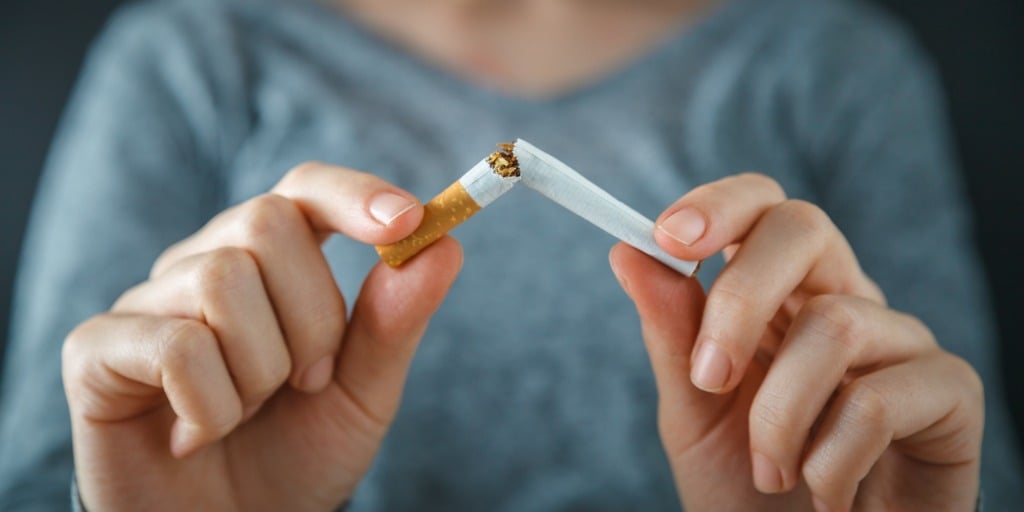Help someone commit to quit on World No Tobacco Day
On May 31, we come together worldwide to support those wanting to quit smoking on World No Tobacco Day. Annually, this day is an opportunity to reinforce the dangers of tobacco use while educating the general population that tobacco-related disease is preventable. Learn more information you can share with patients, family, friends, employees, or colleagues that offer education and support.
Cigarette smoking alone kills more than 480,000 Americans each year, while 16 million Americans are living with at least one serious smoking-related disease. With so many lives lost throughout the pandemic, today’s tobacco smokers are incredibly motivated to quit for good. However, tobacco dependence is a chronic relapsing condition that often requires repeated intervention and long-term support. Many people who use tobacco want to stop, but most attempt quitting multiple times before succeeding.
No tobacco supports your health and wallet
A person’s motivation to quit smoking can be unique to their situation, but there are several common factors most can relate to. For example, after quitting, the benefits start right away. According to the American Lung Association, when a person quits smoking, the body almost immediately starts to repair the damage. It doesn’t matter your age or how long you’ve been smoking. Even after just one day smoke-free, the heart rate drops to a normal level. Additional benefits extend to a person’s cardiovascular, respiratory, and reproductive health, on top of lowering the risk of 12 types of cancer. Once a person quits smoking, it also reduces the risk of premature death can add as much as ten years to life expectancy.
Then there’s the financial benefit because smoking is not only a deadly habit—but also an expensive one. According to the National Cancer Institute, the average cost of a pack of cigarettes is $6.28, which means a pack-a-day habit sets you back $188 per month or $2,292 per year.
Secondhand smoke is deadly
It’s not just the smoker that’s negatively impacted by cigarettes; it’s everyone around them. Tossing a tobacco habit protects your family, friends, colleagues, and anyone else in close proximity from breathing in secondhand smoke. According to Smokefree.gov, secondhand smoke has been associated with lung cancer, heart disease, and breathing problems in non-smokers. The risks become more dangerous for children, babies, and women who are pregnant, including:
- Mothers who breathe secondhand smoke while pregnant are more likely to have babies with low birth weight.
- Babies who breathe secondhand smoke after birth have more lung infections than other babies.
- Secondhand smoke causes kids who already have asthma to have more frequent and severe attacks.
- Children exposed to secondhand smoke are more likely to develop bronchitis, pneumonia, and ear infections and are at increased risk for sudden infant death syndrome (SIDS).
Helpful tips to remember when quitting
- Make a plan, identify your triggers, choose a specific quit date, get rid of temptations
- Avoid activities or places that make you want to smoke
- Think about using aids to help you quit, such as Nicotine Replacement and other quit medications
- Have distractions close by to hold in your hands or put in your mouth
- Look for things to keep your hands busy that you enjoy doing that don’t include smoking
- Practice new ways to calm your nerves
- Get some exercise
- Be prepared for withdrawal symptoms and if you do slip—don’t give up; learn from it
- Celebrate small successes
Resources
-
Mass General Brigham Health Plan members can access our Quit for Life tobacco cessation program. For more information or to enroll, email HealthPlanQuitSmoking@mgb.org or call Joan Heselton at 857-282-3096.
- Tobacco use and cessation resources for healthcare providers from the CDC
- Benefits of Cessation Over Time
- Real stories
- Free resources from smokefree.gov
Contact numbers to help quit
English: 1-800-QUIT-NOW
Spanish: 1-855-335-3569
Korean: 1-800-556-5564
Mandarin and Cantonese: 1-800-838-8917
Vietnamese: 1-800-778-8440
